Her voice quavers a bit, her newly replaced knee won't always cooperate and her artificial hips don't move quite like the originals.
But when Liza Minnelli took the stage of the Chicago Theatre on Sunday night – before a crowd that relentlessly screamed its approval – none of that seemed to matter. For whatever Minnelli, 64, has lost to the ravages of time, she overcame with the sheer grit of her performance.
Any number of female singers can produce more dulcet tones in ballads ( Barbra Streisand), more vocal firepower in showpieces ( Linda Eder), more notes that soar into the stratosphere ( Celine Dion). But combine Minnelli's apparently inextinguishable dramatic fervor with her audience's whole-hearted acceptance of her limitations, and you have the makings of a searing, shattering night of classic American song.
All the more because Minnelli on this occasion pared down the usual trappings of her stage show, with no bevy of dancers, no caterwauling orchestra, no razzle-dazzle video displays. This time it was just Minnelli with pianist Billy Stritch's jazz trio and three horns. For Minnelli, that's roughly the equivalent of singing alone in the shower.
Minnelli, in other words, was quite exposed – vocally and choreographically – beneath the enormous proscenium of the Chicago Theatre, a venue befitting the grandeur of her best work. The question was whether she could fill that space visually and sonically without the usual props, and with some obvious wear on her instrument.
At first, one wasn't so sure. Minnelli opened the evening with one of Hoagy Carmichael's most tender ballads, "The Nearness of You," her daringly slow tempo leaving the wobble in her voice all too plain to hear. Yet even here, in the evening's tenuous beginning, the throatiness of Minnelli's low notes and the expressive meaning she coaxed from each syllable made this a significant reading.
By moving on to "Teach Me Tonight," another ancient tune, Minnelli was establishing the parameters of this concert, which explored vintage repertoire through a jazz-tinged sensibility. Each subsequent piece – even those that Minnelli made famous herself – was reconceived to convey an introspective, late-night intimacy. And when Minnelli looks deeply within a song (and within herself), she can reshape it in revelatory ways.
She took "He's Funny That Way" quite slowly, building to a big, arching climax that unearthed new interpretive possibilities. She duetted seamlessly with Stritch on "I Can't Give You Anything But Love," making the cheesiest of 1920s love songs seem almost silken and sleek. She managed to create the illusion of motion in Kander and Ebb's "Cabaret," her fluttering hands and gently swaying hips telling the story that her entire body once did.
As the evening unfolded, Minnelli's voice gained suppleness and heft, enabling her to conjure some of the old glory in two other anthems by Kander and Ebb. To see Minnelli standing stage center and plunging into "The World Goes 'Round" – an anthem of survival if ever there were one – was to appreciate anew the clenched-fist defiance of both the singer and the song. If any vocalists today approach the ferocity and drive of Minnelli's version of "Maybe This Time," they have yet to make themselves known.
Minnelli's inevitable performance of " New York, New York" drew predictable roars, though the singer here produced more thrilling gesture than sound. But her soft-spoken encore of "All the Lives of Me" (by former husband Peter Allen) stood as the true finale of the evening, an imploring cry from an artist who indeed has lived my lives – and makes the most of it, in song.
hreich@tribune.com
But when Liza Minnelli took the stage of the Chicago Theatre on Sunday night – before a crowd that relentlessly screamed its approval – none of that seemed to matter. For whatever Minnelli, 64, has lost to the ravages of time, she overcame with the sheer grit of her performance.
Any number of female singers can produce more dulcet tones in ballads ( Barbra Streisand), more vocal firepower in showpieces ( Linda Eder), more notes that soar into the stratosphere ( Celine Dion). But combine Minnelli's apparently inextinguishable dramatic fervor with her audience's whole-hearted acceptance of her limitations, and you have the makings of a searing, shattering night of classic American song.
All the more because Minnelli on this occasion pared down the usual trappings of her stage show, with no bevy of dancers, no caterwauling orchestra, no razzle-dazzle video displays. This time it was just Minnelli with pianist Billy Stritch's jazz trio and three horns. For Minnelli, that's roughly the equivalent of singing alone in the shower.
Minnelli, in other words, was quite exposed – vocally and choreographically – beneath the enormous proscenium of the Chicago Theatre, a venue befitting the grandeur of her best work. The question was whether she could fill that space visually and sonically without the usual props, and with some obvious wear on her instrument.
At first, one wasn't so sure. Minnelli opened the evening with one of Hoagy Carmichael's most tender ballads, "The Nearness of You," her daringly slow tempo leaving the wobble in her voice all too plain to hear. Yet even here, in the evening's tenuous beginning, the throatiness of Minnelli's low notes and the expressive meaning she coaxed from each syllable made this a significant reading.
By moving on to "Teach Me Tonight," another ancient tune, Minnelli was establishing the parameters of this concert, which explored vintage repertoire through a jazz-tinged sensibility. Each subsequent piece – even those that Minnelli made famous herself – was reconceived to convey an introspective, late-night intimacy. And when Minnelli looks deeply within a song (and within herself), she can reshape it in revelatory ways.
She took "He's Funny That Way" quite slowly, building to a big, arching climax that unearthed new interpretive possibilities. She duetted seamlessly with Stritch on "I Can't Give You Anything But Love," making the cheesiest of 1920s love songs seem almost silken and sleek. She managed to create the illusion of motion in Kander and Ebb's "Cabaret," her fluttering hands and gently swaying hips telling the story that her entire body once did.
As the evening unfolded, Minnelli's voice gained suppleness and heft, enabling her to conjure some of the old glory in two other anthems by Kander and Ebb. To see Minnelli standing stage center and plunging into "The World Goes 'Round" – an anthem of survival if ever there were one – was to appreciate anew the clenched-fist defiance of both the singer and the song. If any vocalists today approach the ferocity and drive of Minnelli's version of "Maybe This Time," they have yet to make themselves known.
Minnelli's inevitable performance of " New York, New York" drew predictable roars, though the singer here produced more thrilling gesture than sound. But her soft-spoken encore of "All the Lives of Me" (by former husband Peter Allen) stood as the true finale of the evening, an imploring cry from an artist who indeed has lived my lives – and makes the most of it, in song.
hreich@tribune.com















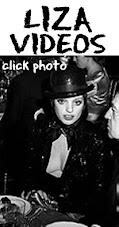


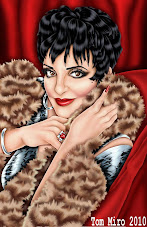

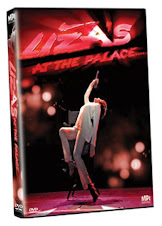











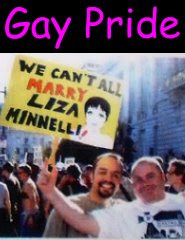










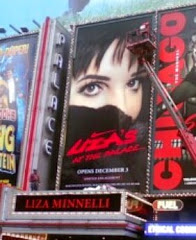




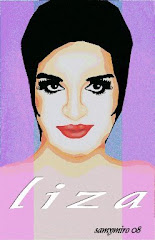


























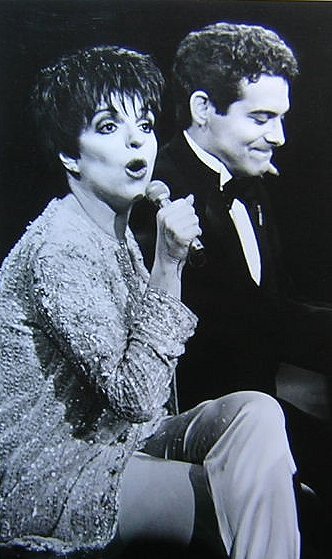


































No comments:
Post a Comment